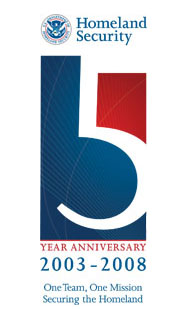
| Home | Information Sharing & Analysis | Prevention & Protection | Preparedness & Response | Research | Commerce & Trade | Travel Security & Procedures | Immigration |
| About the Department | Open for Business | Press Room |

The threat level in the airline sector is High or Orange. Read more.

The Office of Policy Development, in the Office of Policy is headed by Assistant Secretary Richard C. Barth.
The Office of Policy Development ensures the coordinated development of all policy matters before for the Department.
There are 13 units within Policy Development. They are:
Biological Threats & Biodefense Policy is responsible for developing, coordinating, and facilitating policies governing activities related to bioterrorism awareness, prevention, protection, response and recovery. Focus is on today's bioterror threats from aerosolized anthrax, plague as well as catastrophic natural disease threats such as pandemic flu. This unit also looks ahead at new biological discoveries and the convergence of bio and nanotechnologies to get ahead of future biological threats to the homeland.
Border Security is responsible for facilitating and coordinating policies on border-related matters. This unit also supports the Secure Border Initiative strategic planning effort by ensuring substantive policy matters are identified and appropriately vetted across components. The Secure Border Initiative is a massive undertaking to secure the Nation's international borders.
Cargo Maritime & Trade is responsible for developing and coordinating policies and programs related to maritime, land and air cargo; supply chain security; maritime security; and foreign and domestic commerce and trade. Key areas of emphasis include the DHS Strategy to Enhance International Supply Chain Security that strengthens the supply chain and working with relevant DHS agencies on air cargo inspection and security regimes.
The unit serves as DHS's representative on the interagency body known as the Committee on Foreign Investment in the United States (CFIUS). Given statutory teeth by the Exon-Florio law, the program goal for CFIUS is to ensure that national security interests are not compromised by foreign acquisition of U.S. companies.
Counterterrorism (CT) Strategy & Policy is the primary Department coordinator for interagency strategies and policies that support the U.S. Government (USG) War on Terror. They represent the Assistant Secretary for Policy at national-level policy coordinating bodies and ensure that the Department's priorities are reflected in USG policies and strategies to protect and defend the homeland. Key issues include preventing the acquisition and use of weapons of mass destruction by terrorists, disrupting terrorist travel and finance, and countering domestic radicalization.
Cyber Security provides substantive and technical policy guidance to reduce cyber threats and vulnerabilities. The division is also responsible for evaluating legislation and issues related to sensitive personal information by private institutions and government organizations.
Emergency Preparedness & Response is responsible for developing and coordinating Department-wide policies and plans for preparedness, response and recovery missions, as well as the federal emergency management mission within the Department's overall incident management function. Issue areas include improving the National Preparedness Goal, ensuring consistency across incident management strategy and policy, and strengthening international and private sector preparedness.
Immigration, Refugee & Asylum is responsible for the development, evaluation, integration and advocacy of DHS policies in all mission areas related to immigration matters assigned by law or executive order. Key areas include creating an effective visa process that secures America's borders without interrupting legitimate travel and the development of integrated policy on refugee and asylum issues. The division is coordinating intra-departmental policy concerning admission of refugees.
Law Enforcement Intelligence serves as the Department's primary conduit for the broad range of policy matters relating to the law enforcement mission of DHS and policies relating to intelligence and information sharing. Specifically, the unit is developing information sharing regimes within DHS and foreign counterparts.
The division is responsible for developing, coordinating, and facilitating policies governing activities related to WMD awareness, prevention, protection and recovery. Also included are science and technology programs that directly support Federal preparedness programs and strengthen the United States' ability to respond to terrorism or natural catastrophes.
Regulatory Policy is responsible for intra-office and intra-departmental coordination, identification, evaluation and development of DHS regulatory initiatives. The goal is to ensure that the Department adopts regulations that most effectively serve U.S. national security interests.
Transportation Infrastructure is responsible for the development, implementation and coordination of policy relating to the security of our national transportation systems, key resources and critical infrastructure. The unit is developing system-wide approaches to reduce security risks within the Nation's transportation network; such as through air, ground and rail transportation.
The Visa Waver Program Office is responsible for the development, coordination, and oversight of Visa Waiver Program policy issues. The division conducts security assessments on existing and pending member countries to ensure compliance with statutory and other requirements. There are currently 27 countries involved with the program and an additional 13 "Roadmap" countries looking to enter.
This page was last reviewed/modified on May 12, 2008.